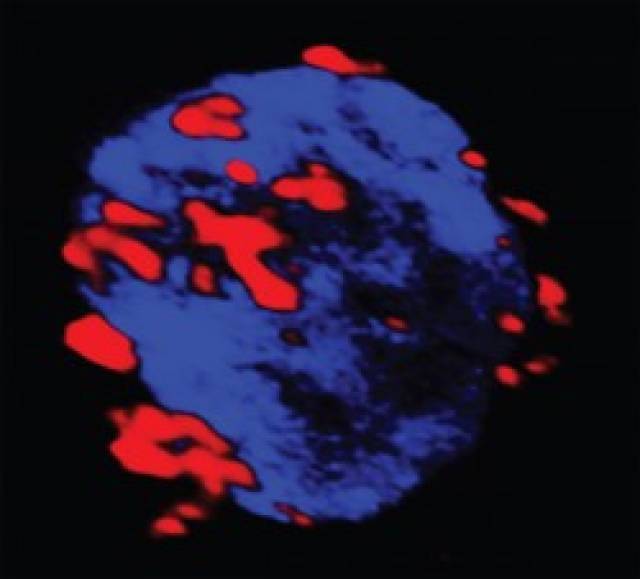Dr. Pere Santamaria, Professor at the Cumming School of Medicine at the University of Calgary (Canada) and head of the IDIBAPS group Pathogenesis and treatment of autoimmunity, leads the study. The Type 1 Diabetes group, from Department of Physiology and Immunology at the University of Barcelona and led by Dr. Thomas Stratmann, and other researchers from Canada and the US, have also participated.
Autoimmune diseases such as type 1 diabetes, multiple sclerosis or rheumatoid arthritis, are the result of a malfunction of the body's immune system. In these diseases T lymphocytes, cells, that coordinate the immune response against viruses and bacteria, attack body's own cells instead of protecting them, damaging the target organ. To treat the disease, defective cells must be eliminated, but current drugs do not have mechanisms to distinguish them from normal cells. Drugs used to treat these autoimmune diseases also suppress normal immunity, thereby leaving the patient susceptible to other illnesses.

Research has been conducted in animal models of several autoimmune diseases. Using this approach glucose blood levels have been restored in mice with type 1 diabetes, motor function has been addressed in mice with a disease similar to multiple sclerosis, and structure and function of joints have been restored in arthritic mice.
"This discovery is important because now we know how to stop autoimmune diseases in a highly specific manner without compromising immunity in general,” explains Dr. Santamaria. "The mechanism we have discovered and the nanodrugs acting on it have the potential to revolutionize the standard of care for more than 80 autoimmune diseases affecting people," he adds.
Article reference:
Expanding antigen-specific regulatory networks to treat autoimmunity.
Clemente-Casares X, Blanco J, Ambalavanan P, Yamanouchi J, Singha S, Fandos C, Tsai S, Wang J, Garabatos N, Izquierdo C, Agrawal S, Keough MB, Yong VW, James E, Moore A, Yang Y, Stratmann T, Serra P, Santamaria P.
Nature. 2016 Feb 17. doi: 10.1038/nature16962.

